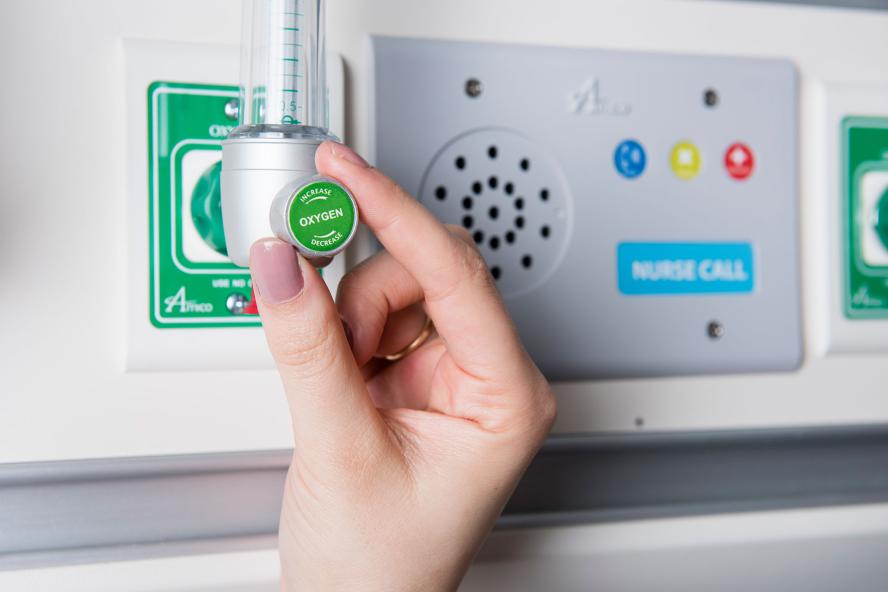Human Factors Engineering
Spring: Sep 15
Summer: n/a
Part-time (Daytime)
Overview
Offered through the Department of Mechanical Engineering, the Human Factors Engineering master's program examines human interaction with physical and virtual interfaces.
Program Highlights
Tufts offers specialized courses, training, and research opportunities in the human-centered aspects of engineering design, such as medical devices and systems design, product design, computer-interface design, and workplace safety.
The program is distinguished by its opportunities to work closely with faculty every step of the way. Graduate students have the chance to collaborate with and learn from some of the most renowned experts in the country, all while seamlessly transitioning from graduate studies to a full-time career.
Graduate Cooperative Education (Co-Op) Program
The School of Engineering's Graduate Cooperative Education (Co-Op) Program provides students with the opportunity to apply the theoretical principles they have learned in their coursework to real-world engineering projects. Gain up to six months of full-time work experience, build your resume, and develop a competitive advantage for post-graduation employment. Learn more about the Co-Op Program.
Program Outcomes
Sometimes referred to as engineering psychology or ergonomics, the study of human factors engineering applies theory, methods, and data to design.
Human factors engineering is a rapidly growing field with a broad range of applications in engineering and beyond. Our program will provide you with updated skills and prepare you for success, whether you're going into the industry or pursuing further graduate education.
Careers for graduates include:
- User interface (UI) designer
- User experience (UX) designer
- Usability researcher
- Information architect
- Interaction designer
- User researcher
- Product designer
- Industrial engineer
Application Requirements
Applicants are admitted to this program on the basis of their educational qualifications. It is expected that applicants to the Human Factors program will have an acceptable bachelor of science degree in engineering or science. Relevant course work and research experience may be considered for non-engineering students.
- Application Fee
- Resume/CV
- Personal Statement
- Transcripts
- Three letters of recommendation
- Official TOEFL, IELTS, or Duolingo test scores (if applicable)
- Mechanical Engineering requires a minimum TOEFL score of 100, IELTS score of 7.5, or Duolingo score of 120 for admittance
- GRE General Test scores are not required
- Portfolio (optional)
Tuition & Financial Aid
At Tufts University, we believe every qualified applicant deserves the opportunity to pursue graduate study. We are dedicated to helping you understand your financial options and to ensuring that graduate education at Tufts is both accessible and within reach.
Tuition costs for this graduate program are billed at a per credit rate:
| Estimated Tuition for MS Program | |
|---|---|
| Tuition* | $1,799 per credit |
| Total Credits Required | 30 |
| Enrollment Status | Full-Time: 3-4 courses per semester (9-12 credits) Part-Time: 1-2 courses per semester (3-6 credits) |
| Estimated Tuition per Semester | Full-Time: $16,191 - $21,588 per semester (9-12 credits) Part-Time: $5,397 - $10,794 per semester (3-6 credits) |
| Estimated Total Tuition* | $53,970 |
*Estimated based on 2025-2026 tuition rates. Rates are subject to change each academic year. For further information about the full cost of attendance, including additional fees and estimated indirect costs (housing, transportation, etc.), please visit Student Financial Services.
The Tufts University School of Engineering offers partial, merit-based tuition scholarships for the majority of our graduate and certificate programs. All applicants are automatically considered for these awards as part of our holistic admissions review process—no separate scholarship application or additional materials are required.
Additional funding opportunities may include Tufts Double Jumbo Scholarships for Tufts graduates, Bridge Program Scholarships for students and alumni from select partner institutions, and veteran and military education benefits for eligible service members and their dependents, including participation in the Yellow Ribbon Program.
To further support your investment in a Tufts graduate education, a range of financing options are available, including federal and private student loans. For more details, please visit our Graduate Financial Aid page.
Career Outcomes

Average Salary: $103K+
Projected Job Growth (2022-2032): 4%
*Sources: Average salary and projected job growth statistics are from the U.S. Bureau of Labor Statistics Occupational Outlook Handbook.
Faculty

Jason Rife

Jason Rife
Research/Areas of Interest: navigation, safety-critical transportation systems, state estimation, human-robot interaction

Daniel Hannon

Daniel Hannon
Research/Areas of Interest: human factors, airspace systems

James Intriligator

James Intriligator
Research/Areas of Interest: Human Factors Engineering, Innovation, Design Thinking, AI-powered Innovation and R&D, Human Machine System Design, Robotics, Machine Learning, Perception, Psychology

Gary Leisk

Gary Leisk
Research/Areas of Interest: machine design, nondestructive testing

Michael Wiklund

Michael Wiklund
Research/Areas of Interest: human factors

Luisa Chiesa

Luisa Chiesa
Research/Areas of Interest: sustainable energy, superconducting materials, materials science

Jeffrey Guasto

Jeffrey Guasto
Research/Areas of Interest: biophysics and soft matter, microscale fluid mechanics and transport phenomena, microfluidic devices

Marc Hodes

Marc Hodes
Research/Areas of Interest: heat transfer, apparent slip, thermal management of electronics, mass transfer in supercritical fluids and thermoelectricity, material science

Mark Kachanov

Mark Kachanov
Research/Areas of Interest: Mechanics of materials; effective properties of heterogeneous materials; microstructure-property relationships; applications to material science

Erica Kemmerling

Erica Kemmerling
Research/Areas of Interest: Fluid mechanics, flow in the human body, hemodynamics, aneurysms, heart development, flow in tumors, cardiac assist devices

Douglas Matson

Douglas Matson
Research/Areas of Interest: solidification processes, thermal manufacturing, machine design, materials science

Chris Rogers

Chris Rogers
Research/Areas of Interest: Engineering Education, Human Robot Interaction, Mechanical Engineering, Music Engineering, Artificial Intelligence and Image Processing

Anil Saigal

Anil Saigal
Research/Areas of Interest: materials engineering, materials science, manufacturing processes, quality control

Jivko Sinapov

Jivko Sinapov
Research/Areas of Interest: Artificial Intelligence, Developmental Robotics, Computational Perception, Robotic Manipulation, Machine Learning, Human-Robot and Human-Computer Interaction

Holly Taylor

Holly Taylor
Research/Areas of Interest: Spatial Cognition, Applied Cognition.

Kristen Wendell

Kristen Wendell
Research/Areas of Interest: learning sciences, engineering education, design practices, classroom discourse, engineering knowledge construction

Robert White

Robert White
Research/Areas of Interest: Microelectromechanical Systems (MEMS) fabrication, modeling, and testing. Particularly acoustic MEMS (microphones, ultrasound), and aerodynamic measurement technologies (skin friction sensors, aeroacoustic sensors). High altitude atmospheric sensing and acoustics for planetary science. Acoustics, vibrations, dynamics and controls. Electromechanical systems including robotics. Finite element methods and system modeling. Electronics for measurement. Mechanical measurements.

Michael Zimmerman

Michael Zimmerman
Research/Areas of Interest: novel polymer electrolytes for batteries, liquid crystal polymers, composite materials, materials science